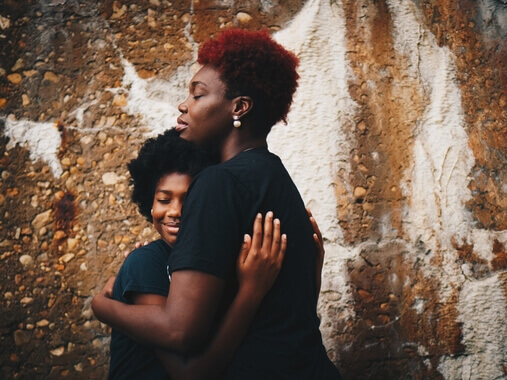What Every Teenager Should Know
Recently I was working with a group of year 7 kids. The focus was on resilience and networks and through our activities the kids were asked to answer a series of questions anonymously. There were a couple of answers, echoed by more than one of the kids, that I was very sad to hear. As a parent, who works with parents, I know that we all want the best for our kids. But there are so many messages we need to be giving our kids, it’s hard to know where to start.
So let’s start here, with two of the most important messages teens need most from their parents. The first is in helping our kids in identifying personal strengths. The second is about listening to your kids, and reassuring them that you’ve got their back.
Identifying Personal Strengths
In response to the question “What are your strengths?” many of the anonymous responses were either “Nothing” or “I don’t know”.
I’m not sure what’s more tragic – the fact that these kids believe this about themselves in the first instance, or the lost potential of gifts unused.
I’m just wondering – at what point along the continuum from birth to adolescence did these kids develop the belief that they had no strengths? More importantly – Why?
I have a few theories which, while not exhaustive, I think we all need to be aware of as educators and parents so that we don’t unwittingly contribute to this belief in our children.
- The Overprotected Child
I think the first is that we are too cautious with our kids. This is one of my biggest faults. The overprotective helicopter parent who wants to protect her kids at all costs, not realising that one of the costs is self esteem. Because it’s through taking risks and triumphing over adversity that we most often realise the stuff we are made of – our truest strengths.
- Values and Strengths
When it comes to helping our kids understand their own unique strengths, we need to check our values and beliefs at the door. We all have a bias. Some of us value sport over the arts, or academia over sport. In helping your teen to know their own personal strengths, your bias does not form part of the equation. If we want our kids to know the stuff they’re made of, to be able to draw from their strengths to get them through times of challenge or adversity, or even just to truly value their uniqueness, then we must truly value them first.
- Focus on Being, not Doing
Third (and remember my list is not exhaustive) is this focus on what our kids DO rather than WHO THEY ARE.
I think this last ‘reason’ also provides us with the answer to combating this belief. If we want our kids to know their strengths they need to value who they are. But how can they value who they are when we place so much value on what they do? Or worse, we compare their behaviours and achievements with their siblings or peers. Even the simple act of comparing a child to their parent doesn’t help. It may be funny or cute to assign the positive attributes to yourself and the negatives to your partner, but how helpful is it really? What about the attributes that are different to both of you? Are they not important?
Celebrating Uniqueness
I’ll put it another way – How are we truly celebrating and encouraging our child’s uniqueness when we are trying so hard to see attributes in them that belong to us? And when we do notice an attribute that is different we wonder where they got that from.
While we’re at it, what are you saying about yourself? You may not say it out loud but your child doesn’t need to hear the words to learn the lesson. Do you struggle with finding your strengths? Is it because you’ve been told you have none? If so, why are you continuing to give those people permission to tell you who you are?
If you really can’t think of anything that you would define as a strength – may I suggest you change your definition? Instead of looking for something that you’re good at doing, some special skill, think more along the lines of personal characteristics. For example – do you find that your friends turn to you for support or to talk things over? Maybe it’s because your friends see you as someone who is trustworthy, a good listener, empathetic, non judgmental, wise. Are you the one your friends seek when they are having a hard time and want a laugh? Maybe it’s because they also see you as someone who is reliable, fun, encouraging.
Get the picture? Likewise, when we celebrate our kids for WHO they are rather than what they DO we are also helping them to discover their character strengths. These are the real strengths, the ones that will get us through adversity. The ones that can’t be taken away. A football star can lose the ability to kick a ball, but they can still be a good team player, a leader, or a problem solver.
Listening to Your Kids
Does your teen know who to go to for help?
When asked to identify 5 people in their lives who they trusted; someone who would listen, be available, believe them and do something to help if they felt unsafe, many of the kids struggled to identify more than 2. In fact one boy couldn’t think of anyone. The class teacher was shocked – this kid comes from a ‘good’ home and is a conscientious student.
Please understand, he knew his parents loved him, he just didn’t think they could help him. He’s not alone in this. Many kids believe their parents are either too busy or too stressed to help them. Couple this with the belief that their problems are insignificant or ‘silly’ and we have a recipe for disaster. This is when kids don’t tell their parents about the important things that are bothering them, such as bullying, loneliness, stress, or worse.
Just because your kid is a ‘good kid’ it doesn’t mean that everything is always OK for them. We all need to be told more than once that we are loved and appreciated, our kids are no different. They need to be reminded that they can talk about anything with you.
They need to know that no matter what stress you’re going through, you will always be there for them, they can always come to you no matter what.
They need to know that there is nothing they can do, no mistake or bad decision, that will make you turn away from them.
And they need to test you. When they test you out on the little things, how you respond or react will go a long way towards determining how much more they will tell you in future. This is the hardest and it’s a skill I’m still learning. Our kids need to trust that when they’re working out life they will be met with listening ears and supportive hearts, not judgement.
Finally, our kids need to know that we are available and willing to listen, that their feelings and fears are valid, that their victories are worthy of celebration, and that we believe them and believe in them.
And of course they need to be told more than once. They’re kids after all.



